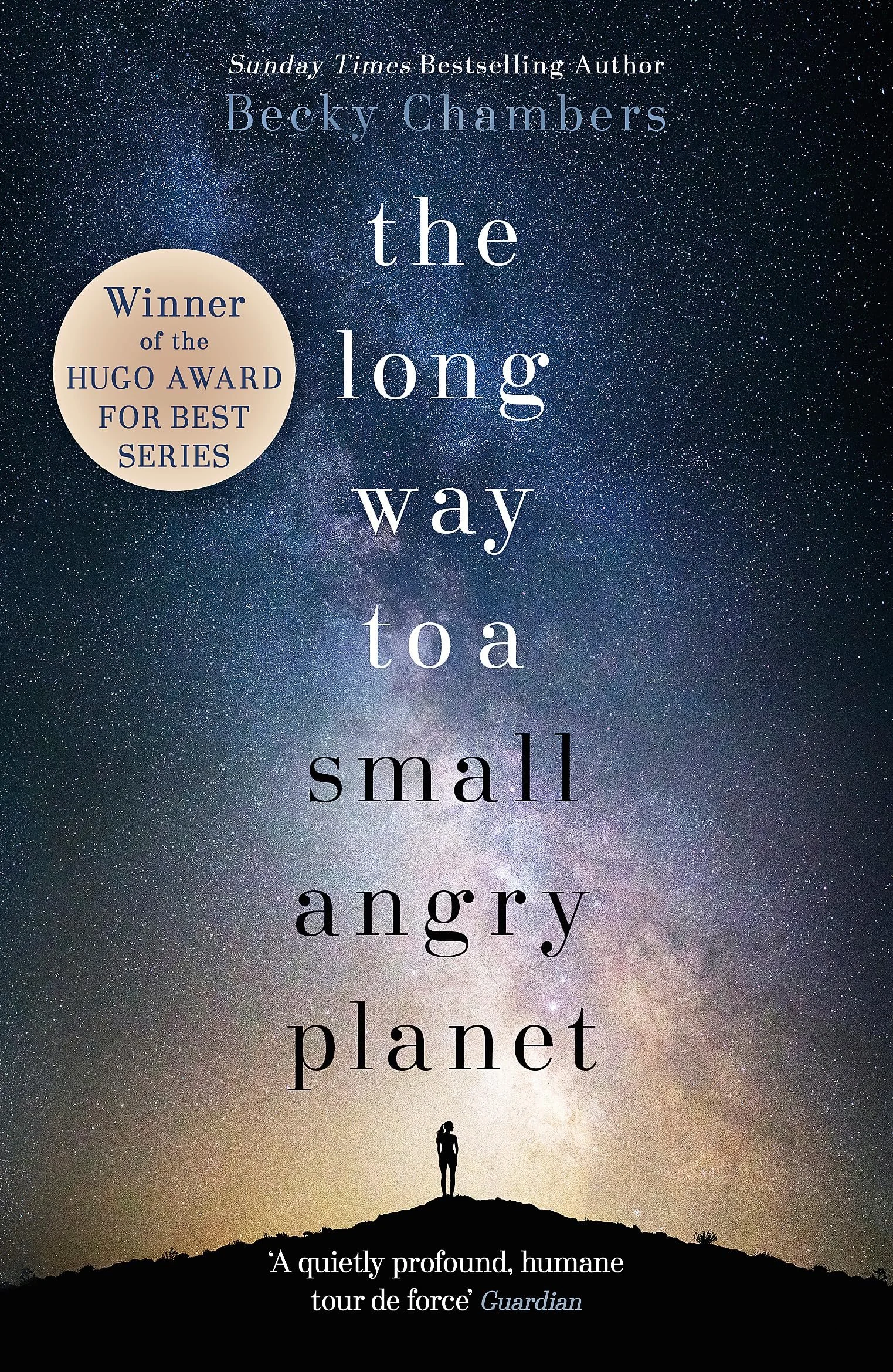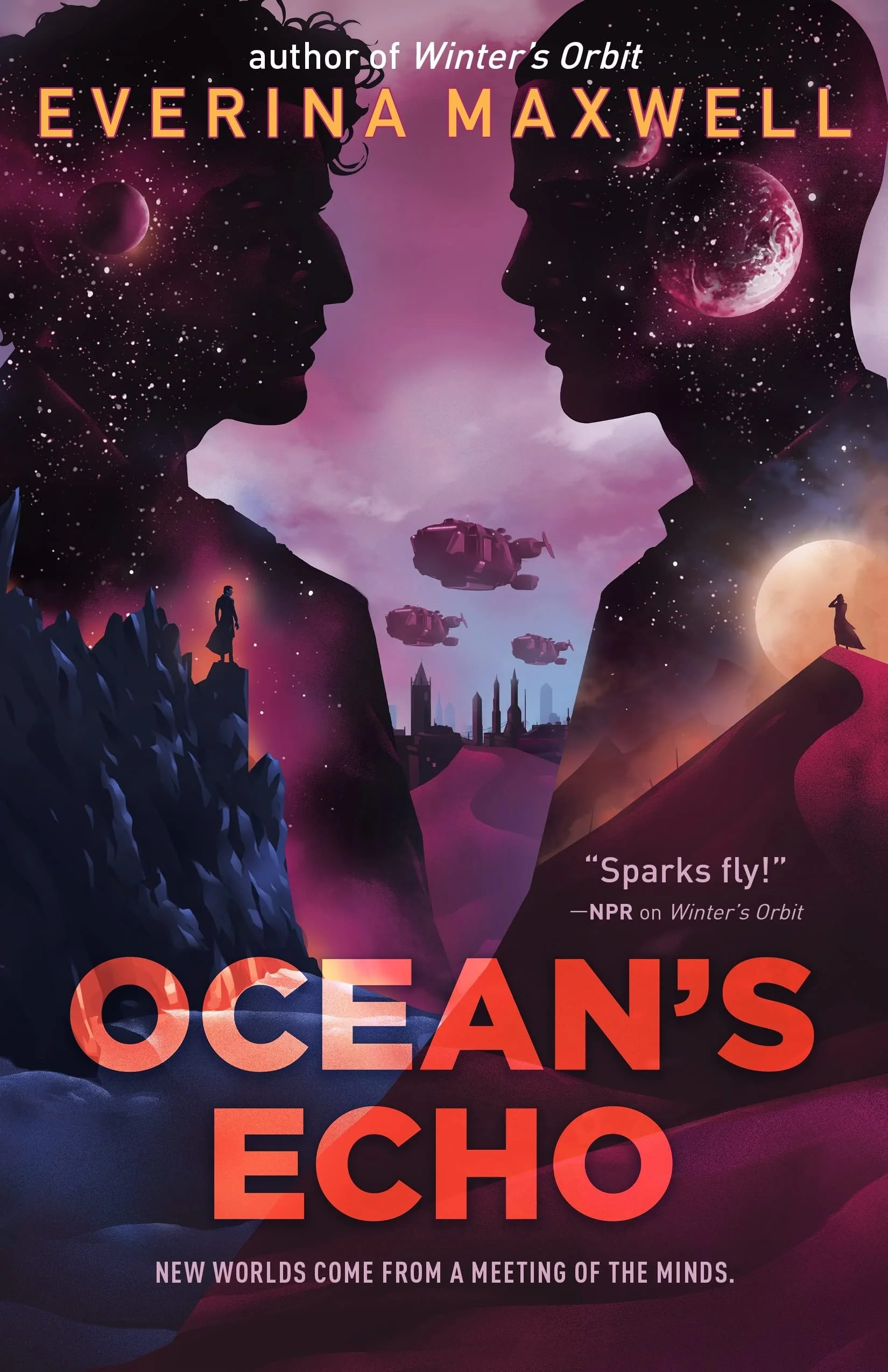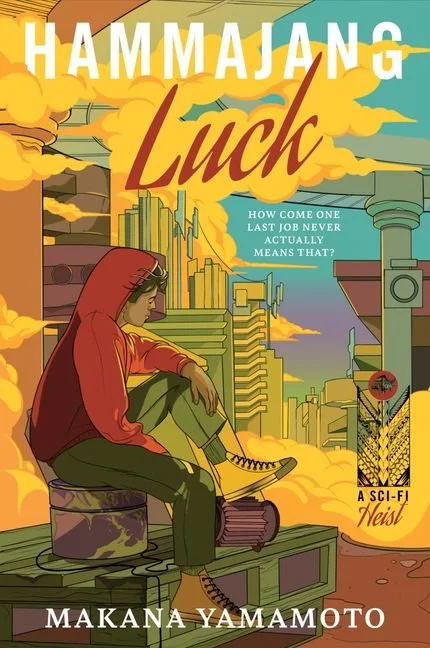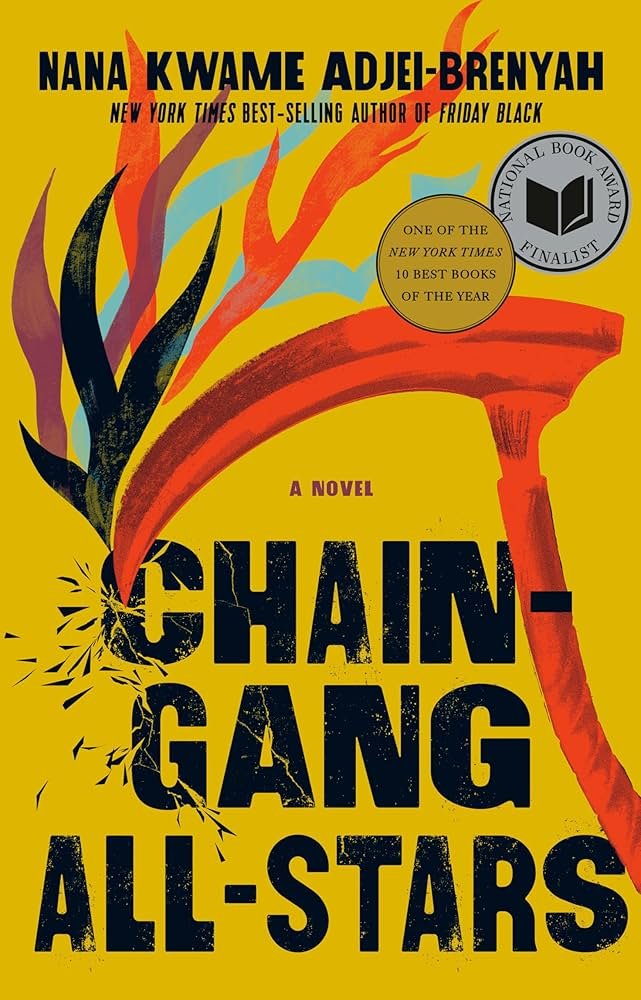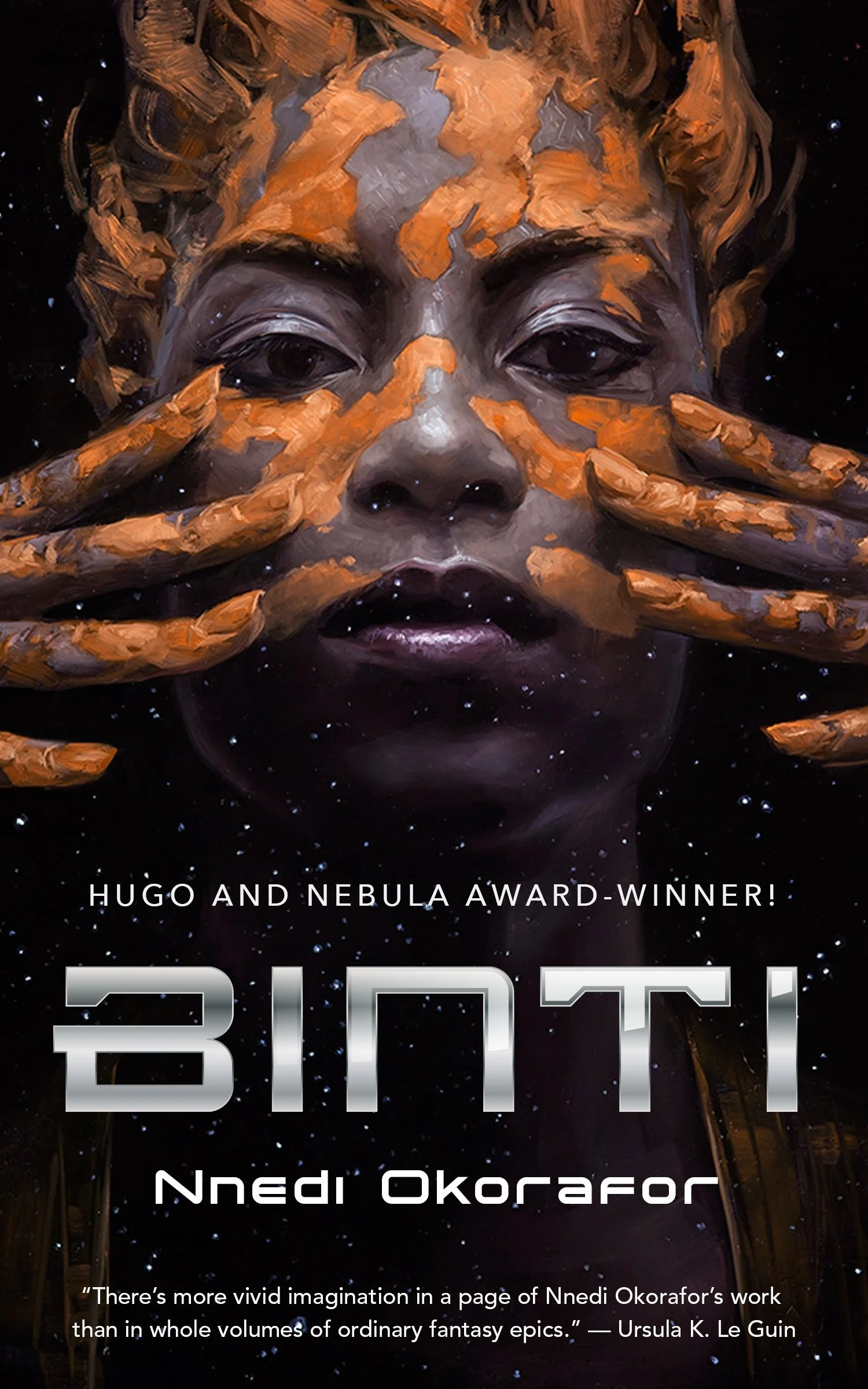Beginners Guide to Sci-Fi
By: Alyssa Aspiotis & Gabby Aspiotis
Welcome to your fool proof guide for all things Science Fiction (aka Sci-Fi)! Similar to Fantasy, Sci-Fi is often a genre that is intimidating to get into. How do you know what Sci-Fi book you want to read if endless options come up every time you search for recommendations? This guide will help you understand how Science Fiction differs from Fantasy, understand the various subgenres, and provides some recommendations to get you started on your journey. We hope you learn more about the Science Fiction genre and add some of these great books to your TBR!
Science Fiction vs. Fantasy
Often, we see Sci-Fi and Fantasy lumped together in the same genre. While there are a plethora of crossovers, there are some notable differences.
What is Sci-Fi?
Science Fiction is often categorized as exploring important ethical and/or theoretical questions by embracing advanced technology. It showcases the impacts that imagined or actual science has upon the story’s society, or the individuals within it. This can allow us to contemplate technology's political impact as we get further into a world where we rely more and more on technology to perform everyday tasks. Some common characteristics include futuristic technology, alternate realities, space exploration, time travel, and themes of human nature.
What is Fantasy?
For a deeper dive on Fantasy, check out our earlier article, Beginner’s Guide to Fantasy. To summarize, Fantasy is categorized by speculative elements that are not found in the real world. These characteristics include magical elements, supernatural creatures, fantastical settings, and the exploration of themes such as good vs. evil.
Let’s Compare: The Similarities
As you can see, Science Fiction and Fantasy have a fair amount of overlap. Both of these speculative fiction genres imagine worlds that differ from our own, even when the setting is the “real world.” This includes various aspects of supernatural elements, advanced technology, and even imagined settings. They both center the fundamental questions of “what if?” even if it’s in slightly different ways. Both of these genres challenge our thinking of what it means to be human, the political state of the world, revolutions, and/or ethical dilemmas. Science Fiction and Fantasy use external elements (such as technology or fantastical creatures) to heighten the conflicts of the story’s protagonist(s). Even though they may do so in different ways, the core foundations are similar.
Let’s Compare: The Differences
There is a central difference between Sci-Fi and Fantasy: Sci-Fi typically explores the plausible while Fantasy dives into the impossible. Science Fiction is grounded in the nature of physics to dictate the rules, whereas the magic system’s rules in Fantasy are created by the author. In Fantasy, the author is free to create anything, and they are not restricted to the bounds of physics and scientific principles. Furthermore, the two genres’ themes are inherently different. Science Fiction explores themes of space and the impacts of technological advancements, while Fantasy focuses on other themes such as good vs. evil, and magic and the supernatural. With these fundamental differences between the two, it is why they are categorized as two separate genres.
Sci-Fi 101: The Subgenres
Sci-Fi is a vast genre that is constantly expanding. There are also many subgenres that each have their own themes and characteristics. While there are specific features to each subgenre, they often overlap. From tech-driven worlds to space adventures, Sci-Fi has something for everyone!
Space Opera
Space opera is the genre people typically think about when Sci-Fi is mentioned. These are character-driven stories with epic adventures and big conflicts set in outer space. There are often elements of heroism, oppressive empires, battles/war, drama, and romance. If that sounds like your cup of tea, here are a couple recommendations to start your journey:
The Long Way to a Small, Angry Planet by Becky Chambers
A cozy Sci-Fi novel that follows a multi-species crew on their adventure through the galaxy to complete missions.
Ocean’s Echo by Everina Maxwell
A romantic space adventure in which a rich socialite, a duty-bound soldier, and their soulbond that could change the fate of their world.
Cyberpunk
Cyberpunk stories are often defined as “low life” and “high tech.” This means that there is advanced and futuristic technology that is fully integrated into society, such as cybernetic body modifications (high tech). There is also a setting of dystopia or decay (low life) where mega corporations rule. What it means to be human is a key theme in this subgenre. If this sounds interesting to you, here are some recommendations:
Hammajang Luck by Makana Yamamoto
A queer space heist that follows a cast of loveable characters and is grounded in Hawaiian culture.
Noor by Nnedi Okorafor
follows a woman on the run after a violent incident. Set in a near future Nigeria, it explores biotechnology, destiny, and humanity.
Post-apocalyptic
Post-apocalyptic Sci-Fi stories are set in a world largely destroyed by a catastrophic event (natural disaster, alien invasion, nuclear war) and humanity struggles to rebuild and survive in the aftermath. Characters in these works are often in lawless zones or barren wastelands. Here are some recommendations to get you started:
Parable of the Sower by Octavia E. Butler
follows a young girl with empath abilities living in a near-future Los Angeles that has been destroyed by climate change and social inequality.
The Fifth Season by N. K. Jemisin
is set on a supercontinent that is wrecked by catastrophic climate change every few centuries and follows a mother who must endure the deadly, dying land to find her daughter.
Dystopian
Dystopian and post-apocalyptic are sometimes grouped together, as many books can fall into both subgenres; but they still have their differences. Dystopian stories are set in nightmarish futures that amplify societal failures, resulting in authoritarian regimes and ravaged environments. Sometimes these futures are the result of an apocalyptic event but they don’t have to be. If this sounds like your speed, here are some recommendations:
Fable for the End of the World by Ava Reid
A sapphic dystopian novel set in New Amsterdam. It follows two young girls: one forced to be a sacrifice in a televised assassination spectacle, and one forced to kill her.
Chain-Gang All-Stars by Nana Kwame Adjei-Brenyah
is set in a reimagined America where incarcerated people in a private prison system can fight for their freedom.
Afrofuturism/Africanfuturism
Last month, we put out an article discussing Afrofuturism and Africanfuturism. Afrofuturism centers Black culture and history while incorporating futuristic and technology elements. It envisions liberated futures for Black people. Africanfuturism was developed from Afrofuturism and it specifically focuses on futuristic stories in Africa. There is a fusion between African history, mythology, and culture. If these sounds interesting to you but you don’t know where to start, here is a recommendation for each:
Dawn by Octavia E. Butler
An Afrofuturism novel that follows a Black woman who wakes up in an alien spaceship centuries after Earth has been devastated by atomic fire. She is caught between wanting to ensure humanity’s survival and the consequences of working with these aliens.
Remote Control by Nnedi Okorafor
An Africanfuturism novel that follows a young Ghanaian girl, named the Adopted Daughter of Death, and her search to find the artifact that gave her deadly powers.
Solarpunk
Solarpunk is a subgenre that imagines what the world would be like if humanity was able to create a sustainable future using technology. These stories focus on climate solutions, acceptance, cooperation, and overall, optimism for the future. Solarpunk is a relatively new subgenre but they’re meant to ignite hope within readers. If you’re looking to start reading some of this subgenre, here are some recommendations:
A Psalm for the Wild-Built by Becky Chambers
follows a tea monk who is struggling to find purpose in their life, when they meet a robot. Centuries ago, robots laid down their weapons and walked into the forest, never to be seen again. Until now.
Binti by Nnedi Okorafor
follows a young girl who becomes the first of the Himba people to go to the best university in the galaxy. However, leaving her family behind means putting herself in danger between the university and a dangerous alien race.
Time to Start Reading!
It’s time to pick up a Sci-Fi book and start (or continue) your journey! We hope you enjoy your journey with these intergalactic worlds, cute robot friendships, and their political commentary. Happy readin’!


